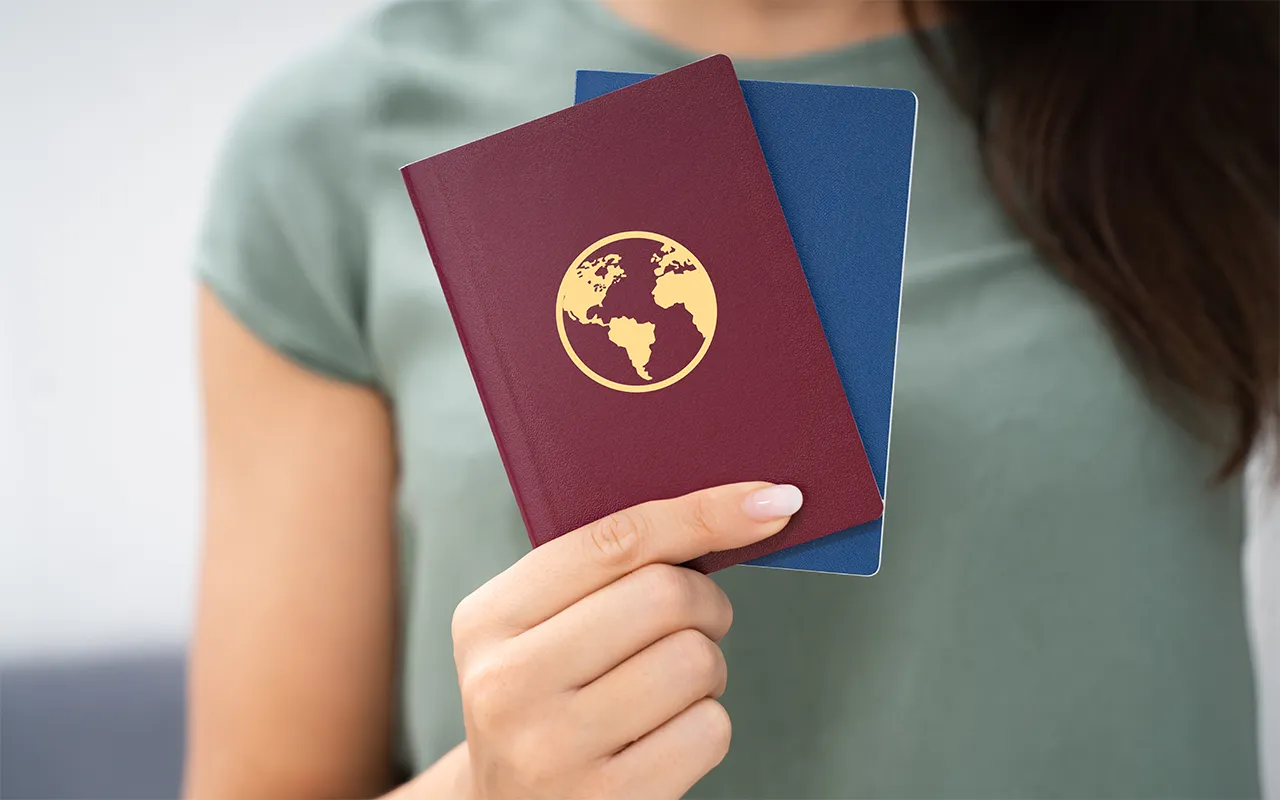
Passports are powerful documents that many travelers take for granted. Individuals born in countries with strong passports will not consider the potential benefits of obtaining a second passport. However, for those limited by their original passport, opportunities for second citizenship, and a second passport, are potentially life-changing.
A second passport can open up many new opportunities for tourism, business, and education that the individual’s original passport might not. For example, dual citizenship often provides visa-free access to more countries. This is especially beneficial for those who frequently travel as it can save time and money on visa applications and processing. Dual citizenship can also improve global mobility and provide more flexibility for one’s future. In some cases, obtaining a second passport improves an individual or family’s security and stability by creating a safety net in the event of a crisis or instability in their home country.
This article will cover the benefits of dual citizenship, explain some methods for obtaining a second passport, and offer some factors to consider before applying for second citizenship.
Visa-free travel
Many countries worldwide have agreements for foreign nationals to enter without acquiring a visa in advance. This is referred to as visa-free access and is intended to make traveling easier and more efficient. Based on international agreements between countries, every passport allows travelers to enter specific countries without a visa. Some passports are powerful and allow visa-free access to many destinations, while others only allow access to a few.
For individuals with weaker passports, obtaining a second passport can improve their lives. By acquiring second citizenship in a country with a more powerful passport, and therefore access to more visa-free destinations, they open up a variety of new destinations to visit or conduct business in. It also saves them time and money by avoiding the numerous visa applications they must complete.
Dual citizenship and visa-free travel
Many benefit from dual citizenship to create more international opportunities for traveling, living, or working. They can obtain a second passport from a country that offers visa-free access to more countries than their original passport allows. Agreements and treaties make this kind of mobility possible.
For instance, joint visa waiver agreements allow citizens of the United States, Canada, and the United Kingdom to enter many European nations visa-free or by obtaining a visa on arrival. Countries in the Schengen area do not require visas for citizens of certain Caribbean nations, such as St. Kitts and Nevis. The North American Free Trade Agreement (NAFTA) facilitates business interactions in North America by allowing individuals from Mexico and Canada special permission to enter the United States visa-free for temporary business purposes.

Benefits of dual citizenship
There are many advantages to obtaining a second citizenship and a second passport. Dual citizenship can enhance an individual’s global mobility and improve financial opportunities. It provides more access to job opportunities and creates new channels for business endeavors. Business and commerce are becoming more globalized, and a second passport can allow anyone to become part of a rapidly evolving and exciting international marketplace.
Furthermore, dual citizenship provides access to a wider range of academic and educational institutions for the applicant or their children. A dual citizen could send their children to university in either country where they have citizenship, for example.
Obtaining a second passport can improve the quality of life for the applicant and their dependents. They will have more social, political, and cultural experiences to look forward to. If their home country faces economic or political instability, obtaining a second passport could also be a pathway to better healthcare, social services, economic growth, and political stability. A second passport can be a way to find more stability and security, providing more ways to achieve one’s goals and live a better life.
How to obtain a second passport
There are many ways to obtain a second passport for those not born with parents from two different nationalities. One popular means of obtaining a second passport is applying to citizenship by investment (CBI) program. These programs are designed for eligible applicants who want to invest in the country’s local economy in exchange for citizenship. Many Caribbean nations offer CBI programs, including St. Kitts and Nevis, Saint Lucia, Grenada, and Dominica. These countries offer CBI programs to international investors. In return, the investor and their dependents obtain second citizenship and visa-free access to over 150 countries, depending on where they apply.
Applying to a citizenship by investment (CBI) program is a great option, specifically designed to allow investors to obtain a second passport that is more powerful than their own. By investing in the country’s government or economy, CBI program participants can obtain a second passport and become dual citizens while gaining greater international mobility and more options for living and working abroad. Each CBI program has its own requirements and costs, so potential investors should review all programs before deciding on one to commit to.
Several Caribbean nations offer well-run, reliable CBI programs. One example is the St. Kitts and Nevis program which allows individuals to obtain second citizenship by donating to the country’s Sustainable Growth Fund or investing in a verified real estate project. Depending on the option chosen, the investment amount can range from $150,000 to $400,000 or more.
Other options for obtaining second citizenship depend on family members’ nationalities. Some individuals may be eligible for a second passport if their parents or spouse are from another country. For example, a person with ancestral ties to France may be eligible for French citizenship, while a person married to an American citizen may be eligible for American citizenship. There are separate application processes for these kinds of ancestry or marriage citizenship requests that depend on the individual’s circumstances and from which country they seek second citizenship.
Factors to consider
There are several considerations individuals should take before applying for a second passport. The possibility of visa-free travel will vary depending on the country giving the second passport. For instance, a European Union passport may allow travel to numerous nations without a visa. In contrast, a passport from a smaller nation may have fewer travel possibilities.
- Cost and fees
The price of getting a second passport is something else to think about. Citizenship by investment programs may be pricey, with charges ranging from tens of thousands to hundreds of thousands of dollars or more. People should carefully weigh the costs of getting a second passport and calculate recurring expenses, such as taxes and other fees. - Tax benefits
In addition to cost, individuals should also consider the potential impact on taxes and other financial considerations. Obtaining a second passport can have implications for an individual’s tax status, depending on the country of citizenship and the tax laws in that country. It is important to consult with a financial advisor or tax professional to fully understand the potential financial implications of obtaining a second passport. - Legal requirements
Of course, obtaining a second passport comes with legal requirements that all applicants must adhere to in order to successfully obtain dual citizenship. Each country has a different set of legal criteria that must be met, including residency and investment requirements and ‘due diligence’ (aka background checks). Some countries with CBI programs require applicants to reside in the country for a specific number of days per year, while others are more lenient about residency and more concerned with the investment itself. - Dual citizenship regulations
All applicants should also be sure that their home country is able to accommodate dual citizenship or risk losing their original passport. Some countries prohibit citizens to have a second citizenship and they can revoke a passport if necessary. If investors are satisfied with their new citizenship, then they can choose to renounce their original passport. In all cases, investors should be sure to consult a legal advisor throughout the process to ensure they have covered all their bases.
Obtaining a second passport can have many advantages, such as more opportunities for visa-free travel, improved global mobility, and access to job and lifestyle choices. Dual citizenship can improve individuals’ quality of life and open opportunities for them and their family members. Applying for a second passport is a worthwhile investment for people who want to broaden their horizons and have more freedom to travel. It might even change their lives by offering them a new, more stable place to call home. Dual citizens can access a broader range of healthcare options, educational institutions, business opportunities, cultural experiences, and more.
Comments (0)
No comments found.